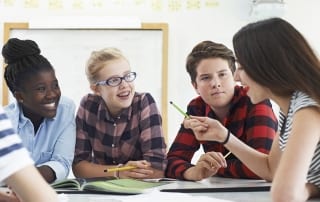Catapult Learning EduBlog
When Your Child’s Behavior Becomes Extreme
When children refuse to clean up their toys or eat their vegetables, most parents know how to best handle the situation. But what if a child’s reaction to appropriate consequences is extreme, escalating to physical aggression and even property damage and making the home unsafe? This type of conduct could be the sign of emotional/behavioral issues that need to be addressed for the best interest of the child, parents and other members of the family. When children act out in these ways, it can be very disconcerting for everyone involved. Parents often take on blame and can feel too ashamed [...]


